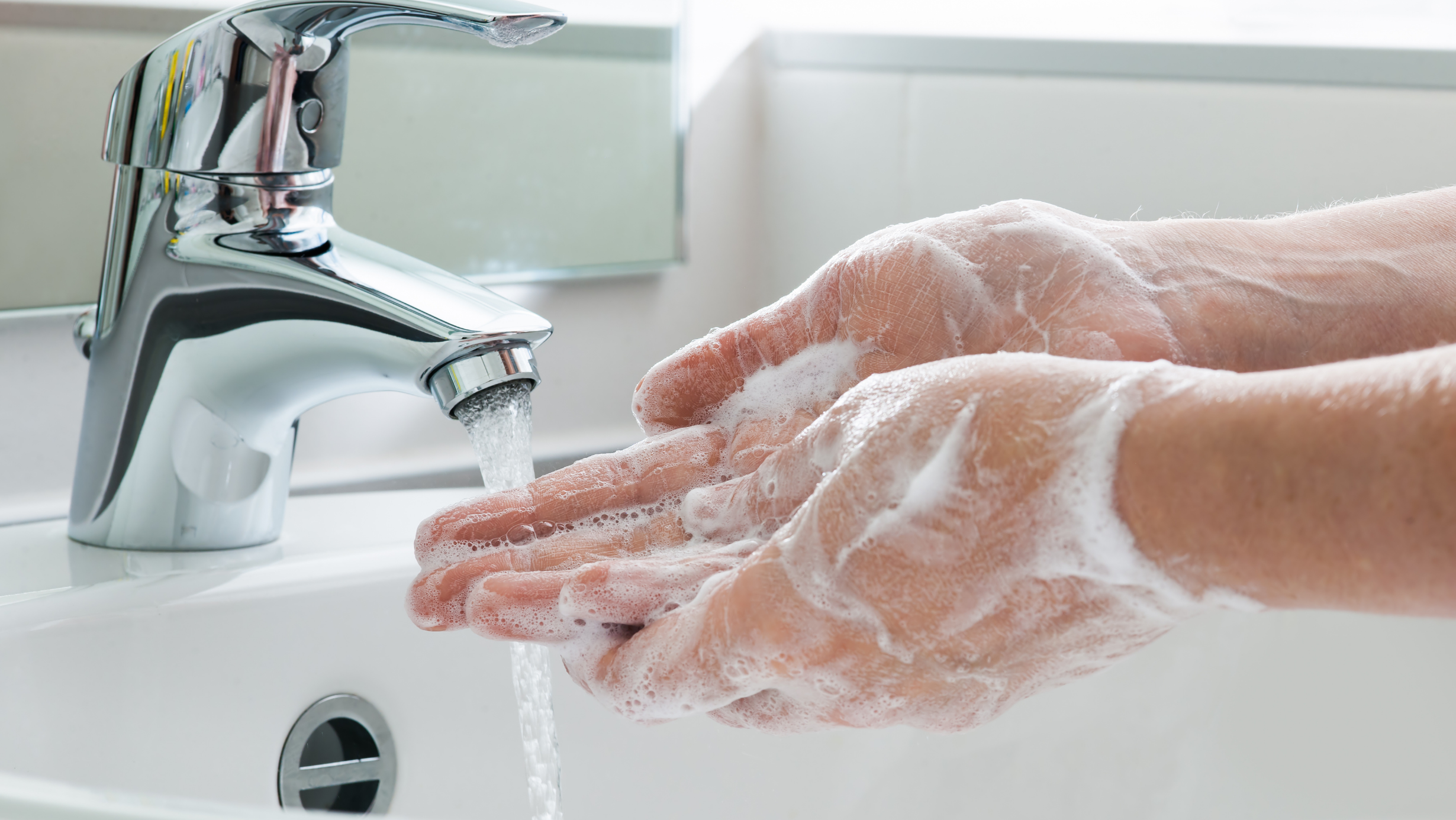90% of people say they will continue to clean their hands frequently after the pandemic is over*
Today, (Wednesday May 5th) marks the World Health Organisation’s Hand Hygiene Day around the world.
Professor Martin Cormican, HSE National Lead for Antibiotic Resistance and Infection Control says:
Most years when Hand Hygiene Day comes around we have to ask ourselves how do find a fresh way to talk to people about the importance of hand hygiene in preventing infection.
Due to the last 18 months of the Covid-19 pandemic, we are in a very different place with hand hygiene to the forefront this year. Preventing infection with Covid-19 has been on everyone’s mind and hand hygiene has had a major part to play.
We have all noticed that since the Covid-19 pandemic began a lot of people are now very aware of the importance of hand hygiene and are cleaning their hands regularly. The Covid-19 virus can’t get through your skin but if the virus is on your hand when you put your hand to your eye, mouth or nose you can catch infection. This is why hand hygiene plays an important part in stopping the spread of Covid-19 infection, as well as preventing all the other infections that are still out there
Department of Health research shows that 96% of people are washing their hands more often as a result of Covid-19 and 90% of people say that they will continue to clean their hands frequently after the pandemic is over. However, we also know that people tend to go back to their old habits when a crisis starts to get better so it is vitally important that we all understand that hand hygiene is not just for Covid-19 – it’s for life.*
Dr. Nuala O’Connor, GP, says:
All GPs have seen a dramatic decrease in the numbers of people who are suffering from respiratory infections. We have not had a flu season in Ireland this year and many parents will identify with the fact that their young children have not had the normal six to ten illnesses they normally get every year. Hand hygiene plays a part in this. We want people to keep on going with their hand hygiene, help your children to learn good hand hygiene and help us to stop the spread of Covid-19 and other infections.”
You can help protect yourself and your family from an infection or superbug:
Wash your hands properly and often:
- After coughing or sneezing
- Before and after preparing food and eating
- After using the toilet or changing a child’s nappy
- If you were in contact with someone who has COVID-19, a fever or respiratory symptoms (cough, shortness of breath, difficulty breathing)
- Before and after being in a crowd (especially an indoor crowd)
- On entering and before leaving buildings, including your home or anyone else’s home
- After touching animals or animal waste
- Before and after visiting someone in a hospital or residential setting
Regular use of a hand moisturiser will protect your hands from the drying effects of hand hygiene products. If you have dry skin or a skin condition, apply moisturiser after washing and drying your hands.
Have a look at proper hand washing. We often think we have washed our hands properly but have a look at this short experiment and you will be surprised.
Tips for stopping infections spreading at home
The goal is to find a good balance between keeping your hands clean when it’s most important without limiting your enjoyment of life. Particularly important times to wash your hand are:
- When you have been in contact with a person or an animal with an infection
- When you get back to your home from being out and about or at work, especially if your work involves a lot of contact with people or animals
- Before starting to prepare or handle food
- After touching raw meat including poultry
- Before eating food
- After using the toilet and after changing nappies
Be wary of the technology
Computers, phones and mobiles are a constant in our lives, we can’t work without them. But how clean are they? Research has shown that PCs, keyboards, phones are full of bacteria – a mouse has an average of 260 bacteria per centimetre squared, a keyboard has 511 and the mouthpiece of a telephone has an impressive 3,895! Make sure you clean your tech equipment even if you are working from home during the Covid-19 pandemic.
The toilet is fine – but watch out for the handles, taps and air hand dryers
The real danger is not the toilet but the handles and taps. Don’t touch the toilet seat with your hands if it’s visibly dirty. Our skin acts as a protective barrier when we use the toilet – it is the largest organ in the human body. Drying your hands with paper towel will reduce the bacterial count by 45 – 60% on your hands. However, using some hand dryers can increase the bacteria on your hands by up to 255% because they can blow out bacteria already living in the, conveniently, warm moist environment.
Get more information
There are lots of tips on hand hygiene on www.hse.ie/handhygiene and you can learn all about bacteria on https://www.e-bug.eu/ a teaching/ learning resource for schools and colleges (and parents!). On ebug you can find out about bugs through quizzes, games and home science experiments. Try them out – you’ll be surprised!
Notes:
Help support Cork Safety Alerts by becoming a member – Click Here

